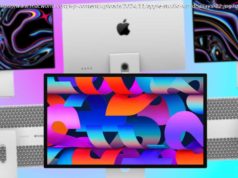Apple bid to force developers to use Metal instead risks games exodus from Mac platform
Apple is to deprecate support for the OpenGL graphics API and the related OpenCL platform in a bid to force developers to adopt its proprietary Metal API instead – risking an exodus of developers from the platform, particularly makers of independent games.
The move will mean that, while applications and games developed with OpenGL and OpenCL will continue to run, they will almost certainly become increasingly unreliable. Nor has Apple ever supported Vulkan, the successor to Open GL, which has been unofficially supported by developers, rather than Apple.
The move is intended to force wholesale adoption of Metal on Apple platforms. Many game developers have already done so, although MacOS only has a fraction of the games that are available on PC. Developing games on OpenGL helps cut the cost and complexity of developing across multiple platforms, especially for smaller games producers.
Games that support Metal today include Dota 2, Fortnite, Unreal Tournament, ARMA 3, Total War: Warhammer, and World of Warcraft. Older games, though, can be expected to start breaking with each successive update to MacOS.
Apple claims that, as of June 2017, more than 148,000 applications use metal directly, and another 1.7 million through high-level frameworks. It claims that Metal offers overall better performance, more efficient multi-threading and reduced CPU overheads.
Apple, as The Inquirer’s Chris Merriman notes, is in many respects following Microsoft’s example: “This is the equivalent of Microsoft enforcing DirectX on Windows users. It means that, in both cases, everything would have to be written for Windows and then again for Mac. And that’s before we get started on Linux, Android, PS4, Switch, Steam and so on,” he writes.
He adds that Microsoft went as far as to remove any trace of support for Open GL from Windows 10 on ARM above version 1.1.
The removal of support for OpenGL also reduces cross-platform compatibility between Windows, Linux, MacOS and other operating systems – a shift that appears to coincide with increasingly proprietorial control not just of operating systems, but the software that can run on them.






